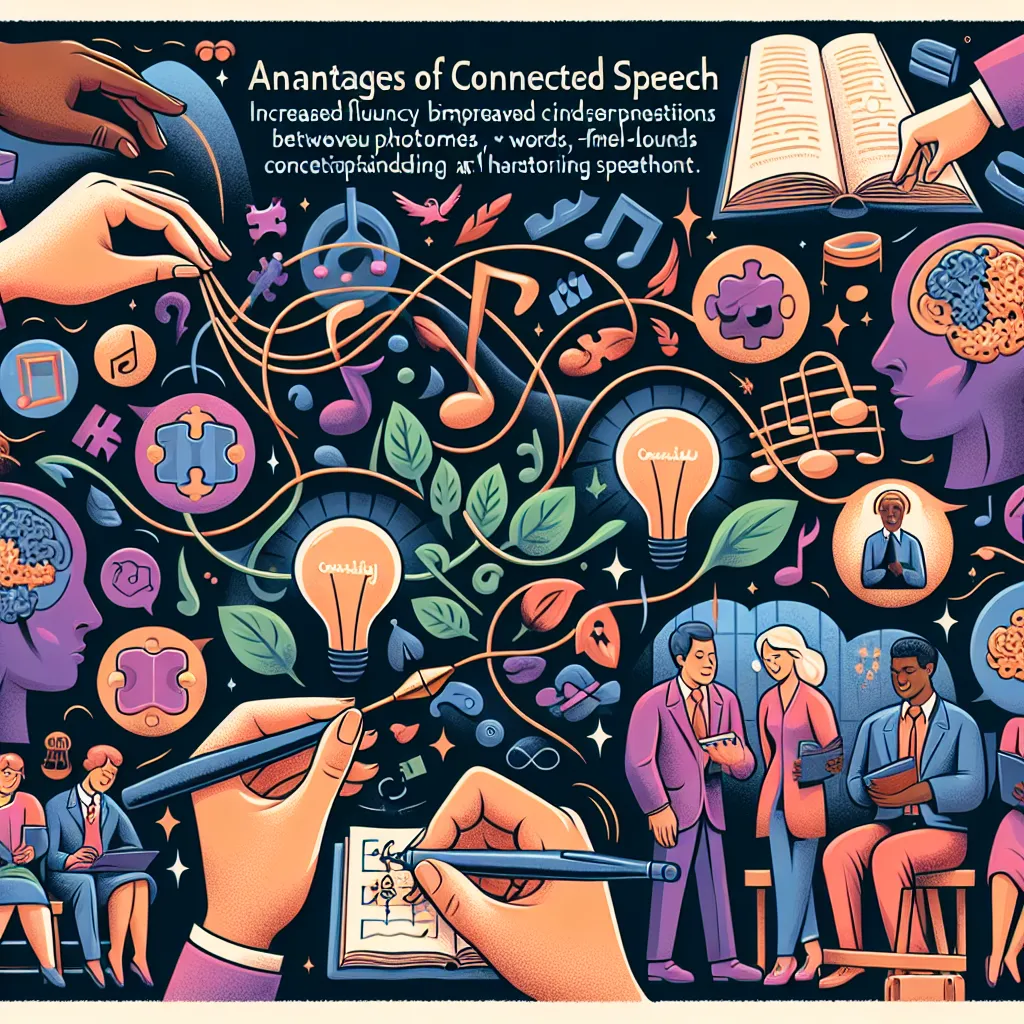Are you looking to improve your English pronunciation and sound more like a native speaker? One of the most effective ways to enhance your pronunciation skills is by practicing with native speaker feedback. In this comprehensive guide, we’ll explore various strategies and tools to help you refine your pronunciation using valuable input from native English speakers.
Why Native Speaker Feedback Is Crucial for Pronunciation Improvement
Native speaker feedback is an invaluable resource for anyone seeking to master English pronunciation. Here’s why it’s so important:
-
Authentic pronunciation models: Native speakers provide real-world examples of correct pronunciation, including nuances that might not be apparent in textbooks or language learning apps.
-
Immediate correction: Native speakers can instantly identify and correct pronunciation errors, helping you avoid ingraining bad habits.
-
Cultural context: Native speakers can explain how pronunciation varies in different contexts or regions, giving you a more nuanced understanding of the language.
-
Motivation and confidence: Regular interaction with native speakers can boost your confidence and motivation to improve your pronunciation.
 Native speaker providing pronunciation feedback
Native speaker providing pronunciation feedback
Effective Methods to Practice Pronunciation with Native Speaker Feedback
1. Language Exchange Platforms
Language exchange platforms are excellent resources for connecting with native English speakers who are interested in learning your native language. Some popular options include:
- Tandem
- HelloTalk
- Bilingua
These platforms allow you to engage in text, voice, and video chats with native speakers, providing ample opportunities for pronunciation practice and feedback.
2. Online Tutoring Services
Many online tutoring services offer one-on-one lessons with native English speakers who specialize in pronunciation. Some reputable options include:
- italki
- Verbling
- Preply
These platforms allow you to book sessions with experienced tutors who can provide personalized feedback on your pronunciation.
3. Pronunciation-Focused Apps
Several apps focus specifically on pronunciation improvement and incorporate native speaker feedback:
- ELSA Speak: Uses AI to analyze your pronunciation and provide detailed feedback.
- Speechling: Offers both AI and human coach feedback on your pronunciation.
- FluentU: Provides authentic English videos with interactive subtitles and pronunciation practice.
4. Recording and Playback Tools
Recording yourself and comparing your pronunciation to native speakers can be highly effective. Tools like Audacity or simple voice recording apps on your smartphone can be used for this purpose. Here’s a step-by-step process:
- Choose a short text or dialogue.
- Record a native speaker reading it (or use a professional audio resource).
- Record yourself reading the same text.
- Compare the two recordings, paying attention to differences in intonation, stress, and individual sounds.
- Share your recording with a native speaker for feedback.
5. Pronunciation Workshops and Classes
Many language schools and online platforms offer pronunciation workshops or classes led by native speakers. These can provide structured learning environments with ample opportunities for feedback.
Common Pronunciation Challenges and How Native Feedback Can Help
Native speaker feedback is particularly useful for addressing common pronunciation challenges:
-
Th-sound: Many non-native speakers struggle with the ‘th’ sound in words like “think” or “that.” Native speakers can demonstrate proper tongue placement and provide targeted practice.
-
Vowel sounds: English has many vowel sounds that don’t exist in other languages. Native speakers can help you distinguish between similar sounds, like the difference between “ship” and “sheep.”
-
Word stress: Incorrect word stress can significantly impact comprehension. Native speakers can guide you on which syllables to emphasize in multi-syllable words.
-
Sentence intonation: The rise and fall of voice in English sentences convey meaning. Native speakers can help you master the subtleties of intonation patterns.
-
Consonant clusters: Words with multiple consonants together (like “strengths”) can be challenging. Native speakers can break down these clusters and provide practice techniques.
The Phonemic Chart and Commonly Mispronounced Words
Understanding the International Phonetic Alphabet (IPA) and using a phonemic chart can significantly enhance your pronunciation skills. Here’s a brief overview of the English phonemic chart:
[Note: Insert a basic phonemic chart here]
Here are ten commonly mispronounced words related to learning and practicing pronunciation, along with their correct pronunciations:
- Pronunciation: /prəˌnʌnsiˈeɪʃən/ (not “pronounciation”)
- Syllable: /ˈsɪləbəl/
- Intonation: /ˌɪntəˈneɪʃən/
- Phoneme: /ˈfoʊniːm/
- Diphthong: /ˈdɪfθɒŋ/
- Schwa: /ʃwɑː/
- Liaison: /liˈeɪzən/
- Cadence: /ˈkeɪdəns/
- Articulation: /ɑːˌtɪkjʊˈleɪʃən/
- Enunciate: /ɪˈnʌnsieɪt/
Native speakers can help you master these pronunciation-related terms, ensuring you have the vocabulary to discuss and improve your pronunciation skills effectively.
Tips for Maximizing Native Speaker Feedback
To get the most out of native speaker feedback, consider these tips:
- Be specific: Ask for feedback on particular sounds or words you find challenging.
- Record your sessions: This allows you to review the feedback later and track your progress.
- Practice actively: Don’t just listen to feedback; immediately try to incorporate it into your speech.
- Be open to criticism: Remember that constructive feedback is essential for improvement.
- Focus on one aspect at a time: Don’t try to fix everything at once. Concentrate on improving one area of pronunciation before moving to the next.
Conclusion
Practicing pronunciation with native speaker feedback is a powerful way to improve your English speaking skills. By utilizing language exchange platforms, online tutoring services, specialized apps, and recording tools, you can gain valuable insights and make significant progress in your pronunciation journey. Remember, consistent practice and a willingness to learn from native speakers are key to achieving clear, confident English pronunciation.
We encourage you to share your experiences with native speaker feedback in the comments below. For more tips on improving your English skills, check out our articles on best tips for clear English pronunciation and strategies for improving English pronunciation.




